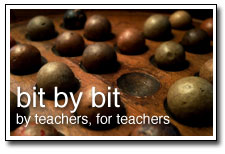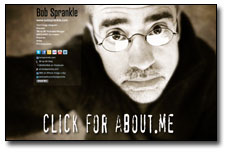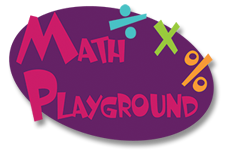(cross-posted at TechLearning)
Here’s an interesting article that caught my attention this week from the L.A. Times: “Too Much Facebook Time May be Unhealthy for Kids.” Specifically, the article sites a study conducted by Larry Rosen, a psychologist at Cal State Dominguez Hills that finds too much technology for kids:
- creates health issues such as increase in “stomach aches, sleeping problems, anxiety and depression.”
- increase missed school time
- increased narcissism
- more likely to have antisocial personality disorders
- paranoia
- anxiety
- alcohol use
- inability to focus
First, I have a feeling that Rosen’s findings are not confined to tweens and teens only; I’m sure the same could be applied to many adults as well. And if I’m incorrect with that assumption, eventually those tweens and teens are going to become adults, and it’s likely that the symptoms and disorders listed above will be carried on through their adulthoods.
It would be easy to use studies like Rosen’s to strengthen the argument to keep kids away from social networking sites, to ban the use of these sites from the educational experience and to continue beating the drum of all that is evil with technology.
However, schools can ban and ignore and refuse the power of social networking sites as much as they want, and for as long as they want, but these tools aren’t going away. On the contrary, they are becoming more ubiquitous and integrated into our students lives every day, in all aspects of their lives… except school.
Banning any tool puts a “dark mark” on it and makes it taboo. No matter how many of us use Facebook in the “real world,” as long as it is treated with prohibition at schools, it carries a certain disparagement, which though mostly unspoken, taints all of our experiences in engaging with the tool. For instance, how many teachers are also banned from accessing Facebook while on school grounds? As Facebook increasingly becomes the way we communicate with family, coworkers, friends, how many teachers begrudge the fact that they can’t have access to it at school?
One argument for banning —for teachers and students— is that it will distract from the normal routines/expectations of the day. Would we say the same thing for telephones (and I’m not including cell phones here, because that’s an entirely other article)? Teachers (and sometimes, even students) are afforded the right to make phone calls at schools for personal reasons (for instance, in an emergency situation, or even being able to set up a doctor appointment because the doctors office will be closed by the time the teacher gets out of school). If they were to abuse this privilege, certainly it warrants a response, but for the most part, phone calls are allowed without admonishment, restrictions, or oversight. Are we actually identifying the “phone tool” as being something that people can maintain in healthy balance in an employment situation, and saying that the “Facebook tool” is something that most people can not use with restraint and independence?
Perhaps this is exactly true. Perhaps culturally or socially, these two tools are not at all the same and can not be lumped into the same category of “communication tools.” At least, at present.
Let’s accept that premise for the time being. Again, isn’t that more reason to incorporate Facebook into schools? Can’t we somehow —through its natural inclusion, make Facebook as normalized as using a telephone?
Consider this: where are students learning proper and healthy usage of social networking tools? If these tools are indeed attributing to unhealthy and alarming habits, then where are students receiving guidance and education about using social networking tools properly, safely, and with a healthy balance and meaningful intention.
Do you discuss your usage of Facebook with your students? Do you describe how you find a healthy approach to social networking with them? Are you actually able to model this behavior for them? Or is Facebook walled off from your classroom, forcing any conversation of its use to abstraction or postulation of how students are using it?
Or… do you just avoid the topic all together?

































